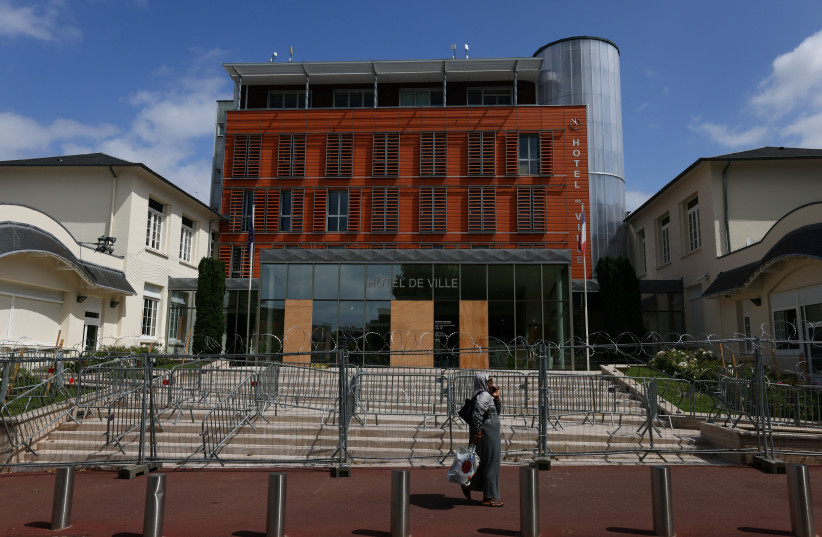PARIS – The shooting death of 17-year-old Nahel that has sparked riots throughout France wasn’t entirely unexpected.
It brought the country back to the riots of 2005, ignited at the time by a somewhat similar incident in which 17-year-old Zyed Benna and 15-year-old Bouna Traoré, both from the Paris-suburb Clichy-sous-Bois, were electrocuted and died when entering into the premises of an electrical transformer to escape an anti-crime police squad.
The 2005 incident sparked twenty-one days of clashes across the country, during which more than 10,000 vehicles burned, 300 hundred public and private buildings were damaged and some 4,000 people were arrested. Tensions were exasperated, when then-interior minister Nicolas Sarkozy referred to the rioters as a ‘’gang of scum,’’ a remark he had to take back again and again over the years. Twelve days after the beginning of these riots, admitting failure to curb the violence, the government declared a state of emergency. And even then, it took it 10 more days to bring an end to the crisis.
Today, tensions in France keep increasing since Nahel’s death in Nanterre. Mayors are warning against expanding urban warfare, especially since many of the rioters are as young as 13 or 14 years old.
Rioters have been posting videoclips of youths breaking into and looting luxury stores as well as small groceries, torching trash bins, and setting fire to police stations, municipal town halls and traffic lights. Hundreds of bus stations have been vandalized.

Dramatic scenes in front of a mayor's home
But one incident especially angered ordinary French people during the weekend, when two cars were torched by young hooded men in front of the home of the mayor of the town L’Hay-les-Roses, south of Paris. The mayor was not at home, but his wife and two small children had to rapidly flee their home, fearing for their lives. The mayor had spoken out against the rioters since the crisis began, and barricaded his municipality with iron fences and barbwire. He is convinced the attack against his family home was personal.
These two periods of violence – in 2005 and today – similarly triggered, both reflect years of frustration and hopelessness among the second and third generations of immigrants from sub-Saharan and North Africa. More than 10% of the French population are recent immigrants and their children and grandchildren still find it difficult to integrate into French society.
Several studies over the years have demonstrated that Muhammad would find it significantly more difficult to get a job than Baptiste.
The French system is allegedly immune to discrimination. Entry to the best public schools and universities, even obtaining the best jobs within the public service, are all subject to competition, where grades determine one’s academic and professional future. But this system failed to integrate African and North African immigrants. The cycle of poverty they are trapped in does not offer their children the necessary conditions in which to study and succeed. Racism towards Arabs and Africans is also on the rise.
But this system of competition failed to integrate African and North African immigrants. The cycle of poverty they are trapped in does not offer their children the necessary studying conditions to succeed. Racism towards Arabs and Africans is also on the rise.
This cycle of poverty and exclusion makes those children search for another identity. Some find it in the mosque, others in the streets, with criminal gangs – ‘’Us against Them.’’
Salim, 21, lives in Sarcelles, north of Paris. The Jewish community which used to live there left because of feelings of insecurity. Working off and on since he finished school, Salim has little hope for the future.
“My mother used to work nights as a cleaning woman in a hospital. With my brothers, we would hang out in the neighborhood after school. We never came home to study. Now I keep watching over my little brothers, making sure they don’t join the groups rioting at night. It’s not easy,’’ he told The Jerusalem Post.
This situation, where extremists can take advantage of those feeling rejected, created neighborhoods into which police are afraid to enter. In search of identity some youngsters adopt anti-Israeli and antisemitic views. It is a dangerous cocktail. Some of these youngsters associate their own feelings of persecution and rejection with the Palestinian cause.
Following an emergency meeting with his ministers, President Emmanuel Macron called last Friday on parents to take responsibility for their children and keep them at home. “The Republic’s role is not to replace the parents,’’ he argued. He also called for cooperation between the government and social media, to erase violence-inciting content, and to close down accounts of leaders of the current riots.
Macron is hoping that targeting social media, combined with a massive police presence in sensitive locations, will snuff out the fire at least for now.
Still, he knows that even if the riots subside, the socio-economic rift is not about to disappear. Rising inflation and a burgeoning housing crisis are hitting the suburbs hard. Until the economic situation improves and more children in the suburbs get a better chance to succeed, the bitterness of this ‘Second France’’ will only expand. The next cycle of riots is already around the corner.
